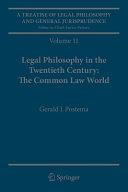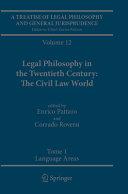
Christian Philosophy of Herman Dooyeweerd
II. the General Theory of the Law-Spheres
Originally available only in typewritten manuscript, Pierre Marcel's two-volume analysis of the philosophy of Herman Dooyeweerd has now been made available to the reading public in a magnificent English translation by Colin Wright. The first volume provides a detailed analysis of Dooyeweerd's critique of theoretical thought. Dooyeweerd analyzed the very basis of thought itself, its presuppositions; and then also the consequences of those presuppositions. The entire range of historical philosophy is taken into account, as are all the schools that manifested themselves up until the time of his writing. The second volume provides an analysis of Dooyeweerd's positive philosophy based on explicit presuppositions, those of Christianity. Dooyeweerd analyzes reality in the light of the framework of laws of thought embedded in the mind and in extant reality. The result is an audacious synthesis that provides a foundation for justified reason. Marcel constructively criticizes both these areas of Dooyeweerd's achievement in the two volumes now presented. They will occupy the top shelf of the works dedicated to the analysis and continuation of the great Dutchman's philosophical magnum opus.
- ISBN 13 : 9076660468
- ISBN 10 : 9789076660462
- Judul : Christian Philosophy of Herman Dooyeweerd
- Sub Judul : II. the General Theory of the Law-Spheres
- Pengarang : Pierre Marcel,
- Kategori : Philosophy
- Penerbit : WordBridge Publishing
- Bahasa : en
- Tahun : 2015
- Halaman : 480
- Google Book : https://play.google.com/store/books/details?id=Cxp-DwAAQBAJ&source=gbs_api
-
Ketersediaan :
They will occupy the top shelf of the works dedicated to the analysis and continuation of the great Dutchman's philosophical magnum opus.





